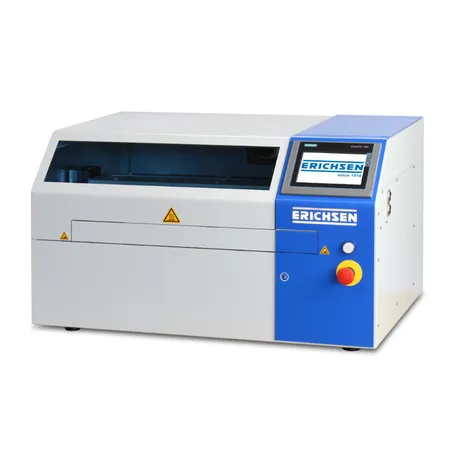The Model 432 Smart I gradient oven, engineered by ERICHSEN, serves as an advanced solution for evaluating the drying and baking behavior of coatings, resins, and plastics. This device simulates production processes accurately, enabling predictions on paint reactions across various temperatures. It’s designed for applications in R&D, quality control, and manufacturing processes where chemical resistance testing is critical.
With its ability to test coatings up to 250°C and facilitate the testing of two different lacquers on the same sheet, it provides a valuable tool for automotive paint manufacturers and other industries facing aggressive environmental factors.
The oven’s capability for a needs-based process optimization, by simulating actual stove enameling conditions on a laboratory scale, offers significant time and cost savings. Its precision and repeatability ensure reliable limit value determinations, critical for maintaining high-quality standards in coating systems.
Furthermore, the integration of a microprocessor-controlled heating bench with 45 isolated elements allows for seamless creation of linear or step temperature gradients, accommodating a wide range of test scenarios. The Model 432 Smart I addresses the need for a versatile, efficient, and effective laboratory instrument in materials testing and quality assurance.

